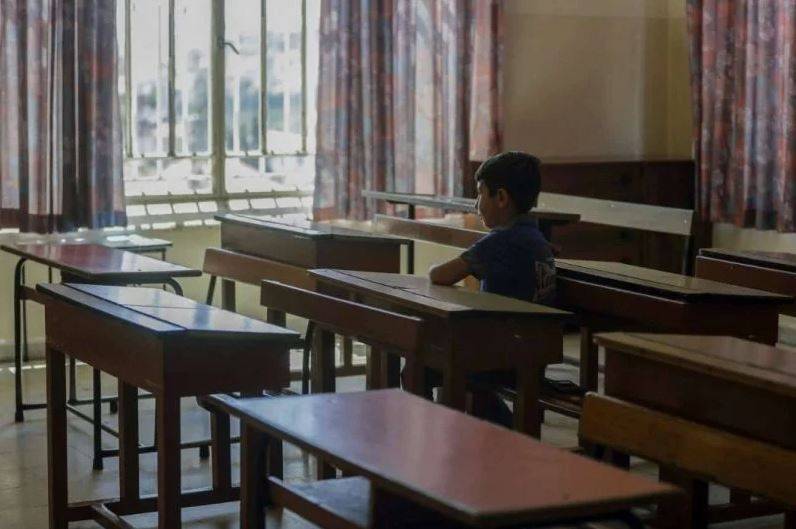
A student sitting in an empty classroom in Lebanon. (Credit: Joseph Eid/AFP/File photo)
BEIRUT — Faced with financial despair, a growing number of families have resorted to forcing their children – some as young as six years old - to work, a survey done by UNICEF shows.
UNICEF stated that the results of the survey paint a dramatic picture of the situation as the crisis continues to escalate for a fourth consecutive year, with devastating consequences for children.
“The compounding crises facing the children of Lebanon are creating an unbearable situation – breaking their spirit, damaging their mental health and threatening to wipe out their hope for a better future,” said Edouard Beigbeder, UNICEF’s representative in Lebanon.
The report, based on UNICEF’s latest rapid assessment of children’s lives, shows that almost 9 in 10 households do not have enough money to buy essentials, and are forced to resort to extreme measures to cope with the crisis.
The report reveals that:
Fifteen per cent of households stopped their children’s education, up from 10 per cent a year ago, and 52 per cent reduced spending on education, compared to 38 per cent a year ago.
Three-quarters of households have reduced spending on health treatment, as compared to 6 in 10 last year.
Two in five households have been forced to sell family possessions, up from one in five last year.
More than 1 in 10 Lebanese families have been forced to send their children out to work as a way of making ends meet, with this figure rising to more than 1 in 4 families amongst Syrians in the country.
Many families cannot afford adequate food and health care, UNICEF said in its report about the survey.
Significantly, the crisis is also driving up period poverty. Over half of those surveyed said the women and girls in their household do not have enough female hygiene items, such as sanitary pads, "and almost all of them [said] they are now too expensive," the report added.
“Increasing investment in essential services for children – critically education, health and social protection will help mitigate the impact of the crisis, ensure the well-being and survival of future generations and contribute to economic recovery,” said Beigbeder.